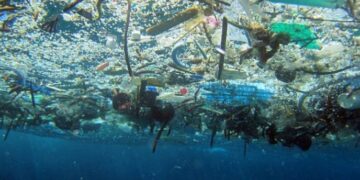NGO issues Pakistan Shipbreaking Outlook
The way forward for a safe ship recycling industry Shipbreaking the dismantling of vessels for the recovery of steel and other materials mainly takes place in developing countries. India, Bangladesh and Pakistan dismantle more than two thirds of all end-of-life vessels sent each year for breaking globally. Shipbreaking is a hazardous industry both for the workers and for the environment and adequate technologies for dismantling and the management of hazardous wastes need to be used, stringent procedures followed and labour rights enforced. End-of-life vessels are considered as hazardous waste under international environmental law when they contain toxic materials such as asbestos, heavy metals, polychlorinated biphenyls (PCB), polyaromatic hydrocarbons (PAH), and organotins like tributyltin (TBT). These hazardous materials are structurally part of the vessels and are found, for example, in the engines. So far, there are no green ships built without any hazardous material.Today, shipbreaking in South Asia is still taking place at the cost of environmental destruction and severe health risks for the workers and the local population who are exposed to this hazardous industry. In 2012, ship owners sold 8506 end-of-life vessels for scrapping in India, Pakistan and Bangladesh. Beaching, the method currently used in South Asia, makes it ...
Read more




















































